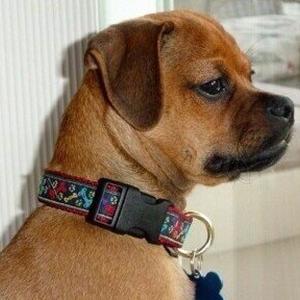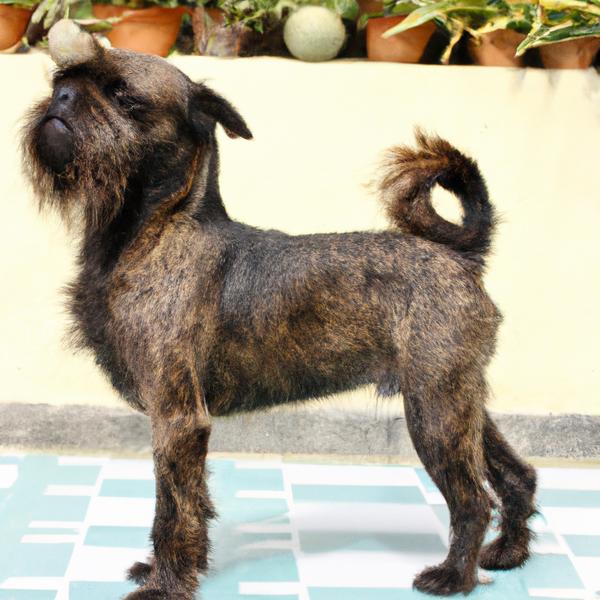Muggin vs. Papigriffon: Breed Differences and Similarities
Hypoallergenic
Are Muggins or Papigriffons hypoallergenic, or neither?
Unfortunately, neither Muggin nor Papigriffon are hypoallergenic, which may not make them the best choice for dog lovers who suffer from pet allergies.
Temperament
What are the personalities of Muggin and Papigriffon dogs?
Playful
Energetic
Courageous
Intelligent
Friendly
Outgoing
Responsive
Affectionate
Loyal
Gentle
Going
Cheerful
Clever
Happy
Energetic
Alert
Sensitive
Intelligent
Friendly
Inquisitive
Selfish
Watchful
Companionable
Shedding Level
Do Muggins shed more than Papigriffons, or which breed sheds more, Muggins or Papigriffons?
Muggins are heavy shedders, but regular brushing can help manage shedding and promote a healthy coat.
Papigriffons shed very little hair, making them a great choice for those who dislike excess hair in the house.
Watchdog Ability
Which dog breed makes a better watchdog, the Muggin or Papigriffon?
Muggins aren't great guard dogs; they tend to just watch without taking action.
Avoid Papigriffons as watchdogs - they're not effective.
Origin
What is the origin of Muggin and Papigriffon dog breeds?
United States
United States
Ancestry
What are the origins of Muggin and Papigriffon breeds?
Pug and Miniature Pinscher
Papillon and Brussels Griffon
Breed recognition
Which kennel clubs recognize/register Muggin and Papigriffon?
ACHC = American Canine Hybrid Club
DBR = Designer Breed Registry
DDKC = Designer Dogs Kennel Club
DRA = Dog Registry of America, Inc.
IDCR = International Designer Canine Registry®
ACHC = American Canine Hybrid Club
DDKC = Designer Dogs Kennel Club
DRA = Dog Registry of America, Inc.
IDCR = International Designer Canine Registry®
Date of Birth
When were Muggin and Papigriffon breeds first developed?
Unknown
1990s
Eye Color Possibilites
What are the eye colors of Muggin and Papigriffon dogs?
Brown
Brown
Nose Color Possibilites
What are the natural nose colors of Muggin and Papigriffon?
Black
Brown
Black
Coat Color Possibilites
What are the natural colors of the coat for Muggin and Papigriffon breeds?
Cream
Black
Brown
White
White
Fawn
Brown
Brindle
Gray
Gray
Sable
Coat Length
What is the typical coat length for Muggin and Papigriffon breeds?
Muggins have short coats.
Papigriffons have medium-length coats.
Coat Density
What is the density of the coat of Muggin and Papigriffon?
Coat Texture
What is the hair texture of Muggin and Papigriffon?
Straight
Litter Size
What is the usual litter size for Muggin and Papigriffon?
A Muggin can have a litter of 2-5 puppies on average. However, it's worth noting that the size of the litters can vary greatly. Factors that can influence litter size include the health of the mother, breeding history, and genetics.
A Papigriffon can have a litter of 2-4 puppies on average. However, it's worth noting that the size of the litters can vary greatly. Factors that can influence litter size include the health of the mother, breeding history, and genetics.
Adaptability
Muggin and Papigriffons are known for their adaptability and versatility. They are capable of adapting well to a wide range of lifestyle changes and living environments, making them great companions for families and individuals of all lifestyles.
Health Issues
Between Muggin and Papigriffon, which breed is more prone to health problems?
Muggins typically have low vet costs due to their good health, but it's important to monitor their health and seek vet care when necessary.
While the Papigriffon breed is generally healthy, occasional vet check-ups are still necessary to address any health concerns.
Major Concerns
What are the major health concerns for Muggin and Papigriffon breeds?
Hip Dysplasia
Epilepsy
Megaesophagus
Von Willebrand's Disease
Legg-Calve-Perthes Disease
Liver Problems
Patellar Luxation
Canine Hip Dysplasia (Chd)
Von Willebrand's Disease
Hypothyroidism
Progressive Retinal Atrophy (PRA)
Minor Concerns
What minor health issues should be kept in mind when owning Muggin and Papigriffon?
Demodectic Mange
Hypoglycemia
Hypothyroidism
Pateller Luxation
Hypoglycemia
Eye Problems
Occasional Tests
What occasional tests are recommended for Muggin and Papigriffon breeds?
Blood
Knee
Hips
Liver Ultrasound
X-Rays
Thyroid Testing
Eye Examination
Ultrasound
Buccal Mucosal Screening
Regular Full Physical Examination By Veterinarian
Ophthalmic Examination
Blood Tests and Analysis
Electroretinogram (ERG)
Biochemistry Panel Tests
Hip and Elbow X-rays
Energy
How do the energy levels of Muggins and Papigriffons compare?
Muggins' high energy levels make them unsuitable for a low-key dog, choose accordingly.
Papigriffons are suitable for those with a balanced lifestyle as they have an average energy level.
Social Needs
Muggin vs Papigriffon social needs comparison
Muggin and Papigriffon have very high social needs. These needs include regular mental and physical stimulation, a job or purpose, and companionship. They thrive in environments where they have a lot of interaction with humans and other dogs.
Exercise Needed
Muggin vs Papigriffon exercise need comparison.
Muggins need moderate physical activity and are great for families and active individuals.
Papigriffons need only a small amount of physical activity, ideal for busy or elderly people or those with limited space.
Sleeping Need
Which of the two sleeps the most/least: Muggin or Papigriffon?
Muggin and Papigriffon breeds are known to have moderate energy levels and normal sleep patterns, typically sleeping around 12-14 hours per day.
Tendency to Bark
Do Muggins or Papigriffons bark more/less frequently?
Muggin and Papigriffons tend to bark moderately, they bark when necessary, such as to alert their owner or to communicate something. They may also bark due to certain triggers like fear, alarm, boredom, greeting, separation anxiety and compulsive barking.
Mouthiness
Mouthiness Comparison: Muggin vs Papigriffon?
Roaming urge
Muggin vs Labrador: Running away tendency?
Prey Drive
Muggin or Papigriffon - which breed has a higher level of prey drive?
Activity Level
Which breed has higher energy, Muggins or Papigriffons?
Both Muggin and Papigriffon are medium-energy dogs that enjoy socializing and playing with other dogs. They may engage in casual or sustained games of chase, and occasionally have bursts of barking or racing around the house.
Tolerance of being left alone
Walks per Week
How many miles should Muggin or Papigriffon walk each week?
There's really no limit to how far you walk your dog as long as they're comfortable. For Muggin, it's at least 5 miles / week. Just remember to build distance and stamina gradually over time.
There's really no limit to how far you walk your dog as long as they're comfortable. For Papigriffon, it's at least 7 miles / week. Just remember to build distance and stamina gradually over time.
Activity per Day
Do Muggins or Papigriffons require more exercise?
In general most Muggins usually need at least 50 minutes of exercise daily. This can be spread across the day and include all sorts of high-energy activities, like walking, running and playing.
In general most Papigriffons usually need at least 60 minutes of exercise daily. This can be spread across the day and include all sorts of high-energy activities, like walking, running and playing.
Grooming
Which breed is easier to maintain in terms of grooming, Muggins or Papigriffons?
The Muggin is a low-maintenance breed that doesn't require much grooming.
Papigriffons require significant grooming, including regular trims and professional grooming assistance to maintain their coat. They may also require frequent bathing to keep their coat and skin healthy.
Brushing Frequency
What is the recommended brushing frequency for Muggin and Papigriffon dogs?
Ideally, Muggin should be brushed at least 2 or 3 times a week (preferably daily) improve shedding.
Papigriffon should be brushed at least once a week. Of course you can give them more frequent brushes if you find that they are still shedding a lot
Brushing Tools
What brushing tools are used for Muggins and Papigriffons?
Pin Brush
Slicker Brush
Scissors
Nail Clipper
Pin Brush
Comb
Deshedder
Nail Clipper
Cups
How much food should be given to Muggin or Papigriffon in cups?
For an average 12-22 pound (5 - 10 kg) Muggin feed 1 cups daily. But, keep in mind, the amount you feed is going to be dependent on the quality of the food you are feeding.
For an average 6-12 pound (3 - 5 kg) Papigriffon feed 1.5 cups daily. But, keep in mind, the amount you feed is going to be dependent on the quality of the food you are feeding.
Daily Cost
Which breed has a higher daily cost, Muggin or Papigriffon?
The average cost of a Muggin is somewhere $1.40 - $1.40 per day.
The average cost of a Papigriffon is somewhere $1.40 - $3.50 per day.
Monthly Cost
Which breed has a higher monthly cost, Muggin or Papigriffon?
The average per month expenses of a Muggin is between $35 - $42. This makes an average of $420 - $504 per year. It will be on the higher side when the dog is still small because it will need more frequent visits to the vet, shots.
The average per month expenses of a Papigriffon is between $36 - $45. This makes an average of $432 - $540 per year. It will be on the higher side when the dog is still small because it will need more frequent visits to the vet, shots.
Intelligence
Comparing Intelligence: Muggins vs Papigriffons
Muggins are average in obedience intelligence but have a high IQ and may cause trouble if left unsupervised.
Papigriffon is a very intelligent and trainable breed.
Sensitivity Level
How do Muggin and Papigriffon compare in sensitivity?
These breeds are more sensitive than others and easily overwhelmed by new surroundings and people. Muggin and Papigriffon need gentle handling and a calm, stable home environment with positive reinforcement training.
Affection Dependance
Which is the more affectionate dog breed: Muggin vs Papigriffon?
Apartment Friendly
Which breed is more apartment-friendly: Muggin or Papigriffon?
Muggins make excellent apartment dogs, being fairly active indoors and not requiring a yard.
The Papigriffon is a great apartment dog, thriving with sufficient exercise and time outside as part of their daily routine.
Child Friendly
Do Muggins or Papigriffons have a friendlier temperament towards children?
Muggins are good with kids if socialized and trained from a young age.
Papigriffons have an average level of friendliness towards children.
Senior-friendly
Which dog is more suitable as a pet for the elderly - Muggin or Papigriffon?
Cat Friendly
Do Muggin or Papigriffon breeds have a better compatibility with cats?
Muggins are good with cats, but early training is needed to prevent chasing behavior.
Papigriffons are very friendly with cats and make great companions for them.
Dog Friendly
Which breed is more sociable with other dogs: Muggin or Papigriffon?
Muggins are friendly and active companions, and can be good family pets, though their friendliness towards other dogs may vary.
Papigriffons are average in their friendliness towards other dogs, and socialization can help.
Pet friendly
How do Muggin or Papigriffon dogs interact with other pets?
Stranger Friendly
Which breed is more friendly with strangers: Muggin or Papigriffon?
Muggin and Papigriffon are friendly dogs and typically won't bark at strangers. However, if you wish to change this behavior, training them is easy thanks to their intelligence, making it pretty simple to teach them anything.
Playfulness
Which breed is more playful between Muggin and Papigriffon?
Muggin and Papigriffon are playful dogs. So, no matter how busy the day may get, the best thing you can do for Muggin and Papigriffon is to make time each day to play. It can be as little as 15-20 minutes, and it will mean the world to them.
Trainability
How do the trainability levels of Muggins and Papigriffons compare?
Muggin and Papigriffon dogs are usually easy to train, but may require consistency to fully obey commands.
Compare Muggin with other breeds
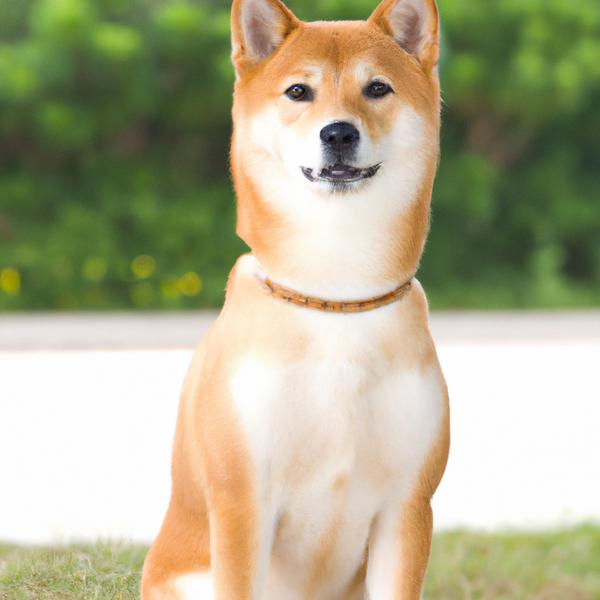
Shibos
Muggin vs Shibos
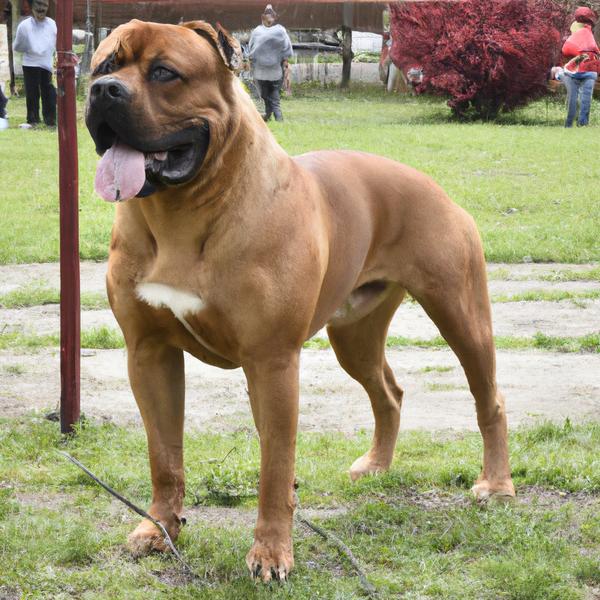
Pit Bullmastiff
Muggin vs Pit Bullmastiff
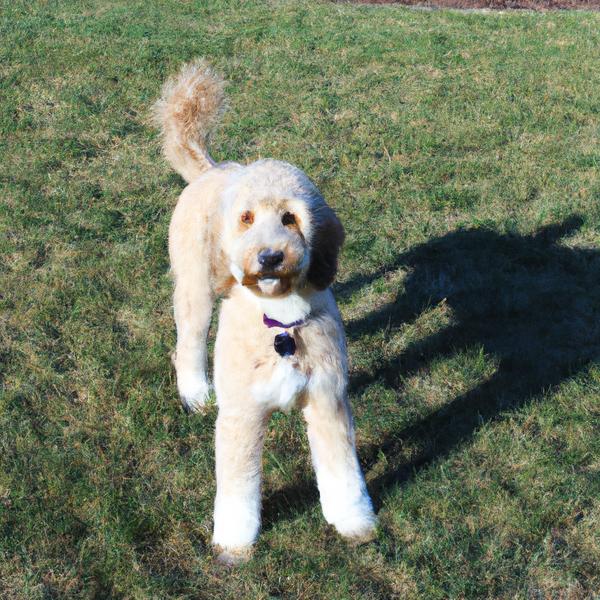
Flandoodle
Muggin vs Flandoodle
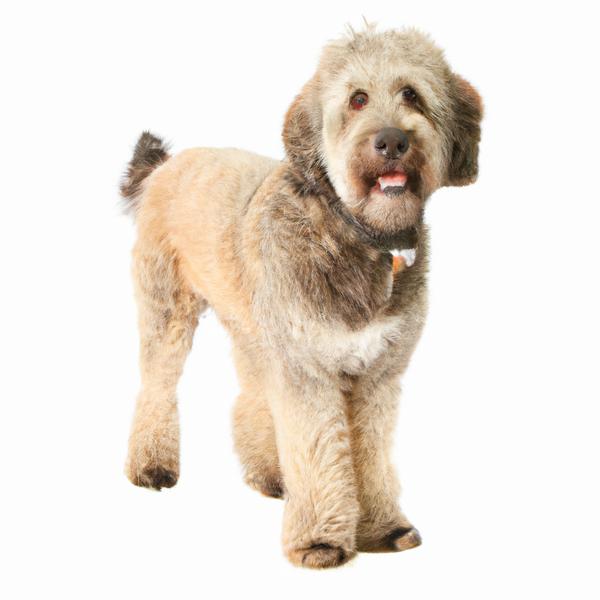
Bridoodle
Muggin vs Bridoodle
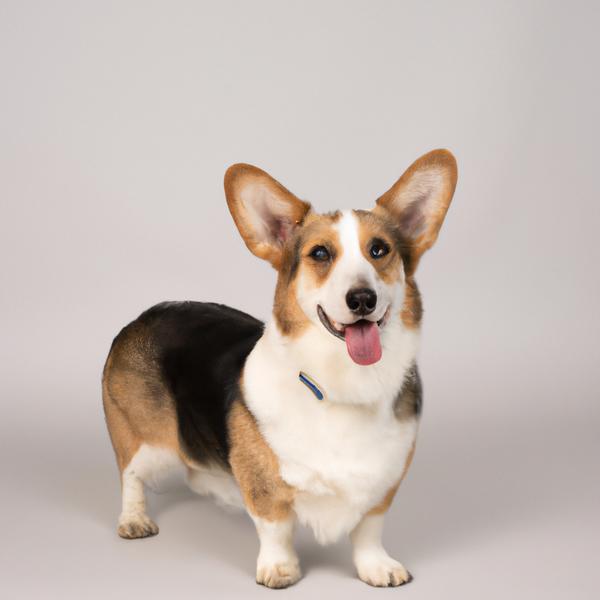
Corgi Basset
Muggin vs Corgi Basset
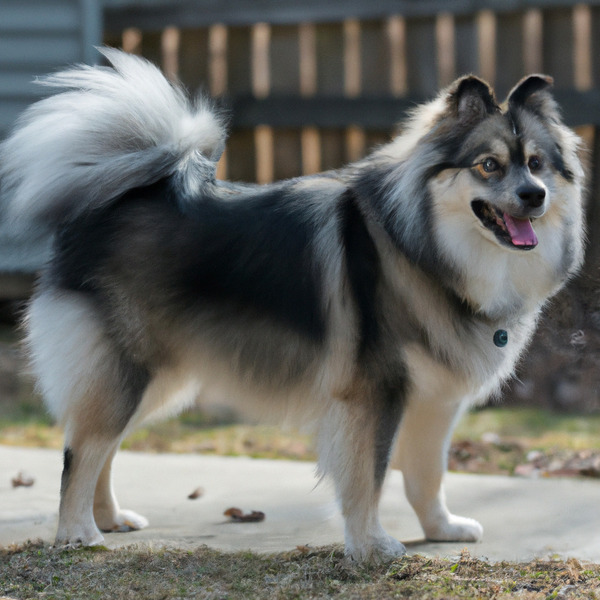
Pomsky
Muggin vs Pomsky
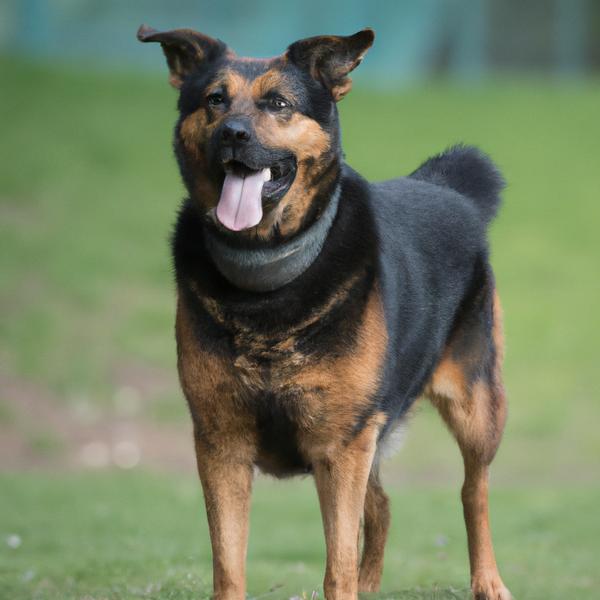
Shepweiler
Muggin vs Shepweiler
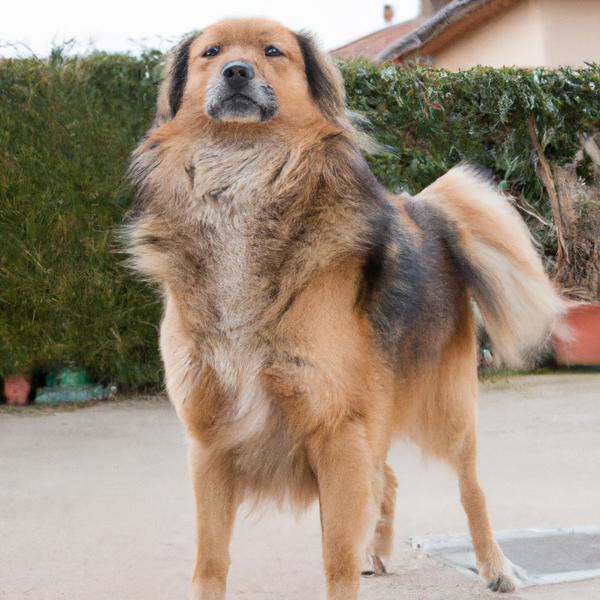
Afollie
Muggin vs Afollie
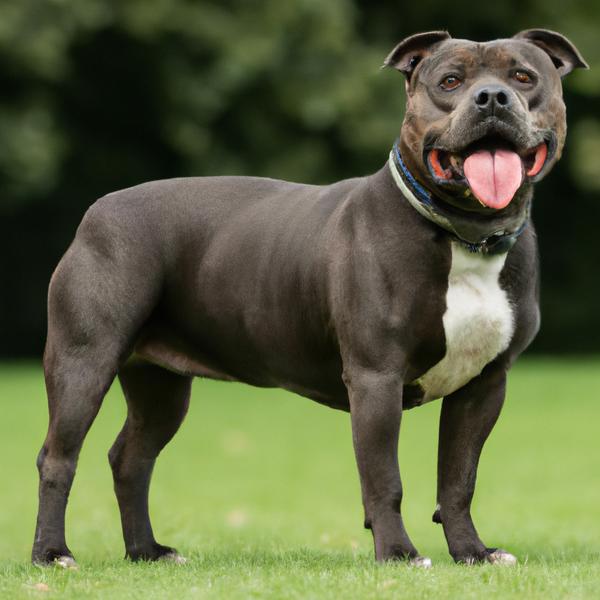
American Bully Staffy Bull Terrier
Muggin vs American Bully Staffy Bull Terrier
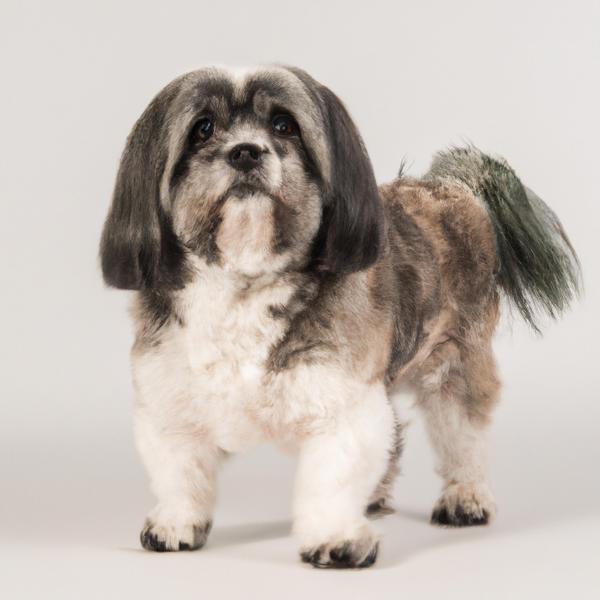
Havapeke
Muggin vs Havapeke
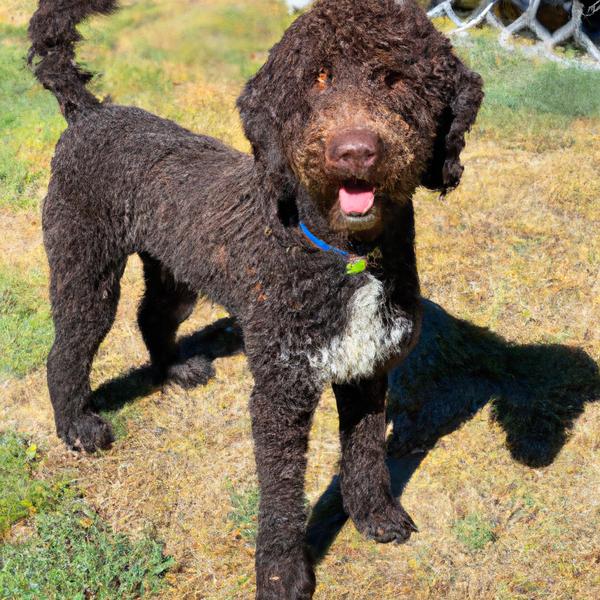
Spanish Water Dog
Muggin vs Spanish Water Dog
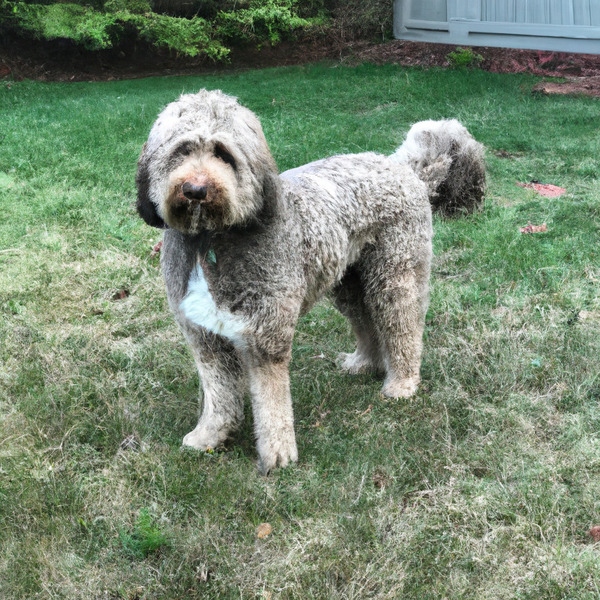
Whoodle
Muggin vs Whoodle
